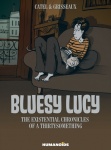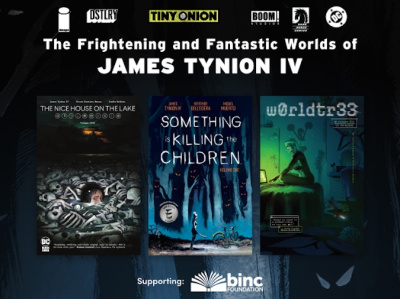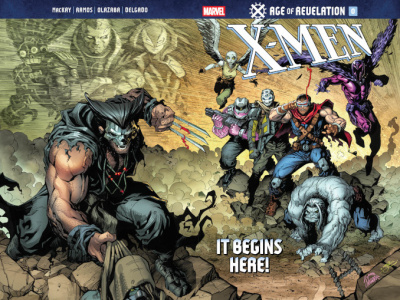 Bluesy Lucy HC
Bluesy Lucy HCPublisher: Humanoids
Release Date: August 2013
Price: $24.95
Creators: Catel and Veronique Grisseaux
Format: 120 pgs., B&W, 6" x 8", Hardcover
ISBN: 978-1-5946-5048-2
Age Rating: Teens/Adult
ICv2 Rating: 4 out of 5
Originally published in the Tohu Bohu collection by Les Humanoides Associes, Bluesy Lucy debuted in 2000 as an ongoing series that was later distributed by Casterman from 2003-2006. Bluesy Lucy is the story of Lucy, a single 30-year-old graphic designer, who witnesses all of her friends either married or starting their own families. Embarking on an absurd journey to find her own suitor, Lucy's adventures turn comical in this latest offering from Humanoids Inc.
The 30-something woman defined by her relationships with men and the subsequent humorous episodes that result from such encounters has become a hallmark of American popular culture in film and television. In fact, it has become so commonplace that it borders on literary trope or convention or perhaps even a genre onto itself that is ripe for parody and lampooning. Whether it is the single mother attempting to redefine her existence in a post-divorce environment or the single woman amongst a cadre of married friends or siblings, the story is almost always the same--shame, embarrassment, hopelessness, and finally, acceptance. Bluesy Lucy fits somewhere within this package, but it is still difficult to define or easily pigeonhole.
What sets Bluesy Lucy apart from the rest is that the majority of its characters, Lucy included, are largely dysfunctional and miserable through their own endeavors. While Lucy may idolize her friend Eleanor's marriage or at times envy her sister Benedicta's ability to start her own family and thus embody the ideal of happy homemaker, Catel and Grisseaux reveal darker forces at work to undermine these supposedly stable relationships. Furthermore, the creators give Lucy an agency to negotiate her own failures and determine her own outcomes not found in the genre, that the moments of self-realization and awareness she experiences hold greater resonance and significance. This marks an important evolution in the trope.
Audiences familiar with Catel from Kiki de Montparnasse will find the art much looser and abstract in Bluesy Lucy. Gone are the clear, clean, sharp lines and instead, Catel relies on a more frantic, anxious line and scratchier backgrounds for Bluesy Lucy. Along with the innovative panels and varied page layouts, as well as perspectives shaped by the limited gutters make for a fast-moving, quick reading experience.
--Nathan Wilson







